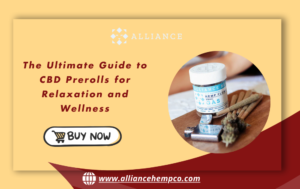
Anxiety has become a common experience in today’s fast-paced world, affecting millions of people. While medication can be effective for some, many seek natural remedies to alleviate their anxiety. This article explores various natural approaches that may help you find calm without relying on pharmaceuticals.
Understanding Anxiety
Anxiety is a normal response to stress, characterized by feelings of worry, fear, and apprehension. It can manifest in various ways, including generalized anxiety disorder (GAD), social anxiety disorder, panic disorder, and specific phobias. Symptoms can range from mild nervousness to debilitating panic attacks. Understanding the root causes and triggers of anxiety is crucial for effective management.
Lifestyle Changes
1. Regular Exercise
Physical activity is one of the most effective natural remedies for anxiety. Exercise releases endorphins, the body’s natural mood elevators, which can reduce stress and improve overall well-being. Aim for at least 30 minutes of moderate exercise most days of the week. Activities like walking, jogging, yoga, and dancing can significantly decrease anxiety levels.
2. Balanced Diet
What you eat can influence your mood and anxiety levels. A well-balanced diet rich in whole foods, including fruits, vegetables, whole grains, and lean proteins, supports mental health. Omega-3 fatty acids, found in fish like salmon, walnuts, and flaxseeds, have been shown to reduce symptoms of anxiety. Additionally, reducing caffeine and sugar intake can help stabilize mood swings.
3. Quality Sleep
Sleep and anxiety are closely linked. Poor sleep can exacerbate anxiety symptoms, while adequate rest can promote a sense of calm. Establishing a regular sleep schedule, creating a relaxing bedtime routine, and ensuring a comfortable sleep environment can improve sleep quality. Aim for 7-9 hours of sleep each night.
Mindfulness and Relaxation Techniques
4. Meditation
Meditation is a powerful tool for managing anxiety. Mindfulness meditation encourages focusing on the present moment, which can help break the cycle of anxious thoughts. Start with just a few minutes each day, gradually increasing the duration. Apps and guided meditations can provide support for beginners.
5. Deep Breathing Exercises
Breathing exercises can trigger the body’s relaxation response, helping to reduce anxiety. Techniques like diaphragmatic breathing, 4-7-8 breathing, or box breathing can be practiced anywhere. For example, in 4-7-8 breathing, inhale for four counts, hold for seven, and exhale for eight.
6. Progressive Muscle Relaxation (PMR)
PMR involves tensing and then relaxing different muscle groups in the body. This technique helps to identify and release physical tension associated with anxiety. Start from your toes and work your way up to your head, consciously relaxing each muscle group.
Herbal Remedies
7. Chamomile
Chamomile is widely known for its calming effects. Drinking chamomile tea or taking chamomile supplements may help reduce anxiety symptoms. Some studies suggest that chamomile can be as effective as certain anti-anxiety medications, but with fewer side effects.
8. Lavender
Lavender is another popular natural remedy for anxiety. Its soothing scent can reduce anxiety and promote relaxation. Aromatherapy with lavender essential oil, using lavender sachets, or drinking lavender-infused tea can all be beneficial.
9. Ashwagandha
Ashwagandha, an apoptogenic herb, has been shown to reduce stress and anxiety levels. It helps the body adapt to stressors and can improve overall mental health. It’s available in various forms, including capsules and powders, and can be easily added to smoothies or meals.
Cognitive and Behavioral Strategies
10. Cognitive Behavioral Therapy (CBT)
While not a natural remedy per se, CBT is a powerful, evidence-based therapeutic approach that can be used alongside natural methods. It involves identifying and changing negative thought patterns and behaviors that contribute to anxiety. Working with a trained therapist can help you develop effective coping strategies.
11. Journaling
Writing about your thoughts and feelings can provide clarity and reduce anxiety. Journaling allows you to express your emotions and reflect on triggers, helping you to develop a better understanding of your anxiety. Consider setting aside a few minutes each day to write.
Social Support
12. Connect with Others
Having a strong support system is crucial for managing anxiety. Talk to friends or family about your feelings, or consider joining a support group. Connecting with others who understand what you’re going through can provide comfort and reduce feelings of isolation.
13. Limit Screen Time
In our digital age, constant exposure to news and social media can heighten anxiety. Setting boundaries around screen time can help reduce stress. Engage in activities that promote face-to-face interactions or explore hobbies that don’t involve screens.
Conclusion
Finding calm without medication is a journey that often requires a multi-faceted approach. By incorporating lifestyle changes, mindfulness techniques, herbal remedies, and social support into your routine, you can effectively manage anxiety. It’s essential to remember that what works for one person may not work for another, so be patient as you explore different strategies. If anxiety persists or worsens, consider consulting a healthcare professional for guidance and support. Embracing a natural approach to anxiety management can lead to a more balanced, fulfilling life.






